The Many Layers and Complicated Hierarchy of the English Football Pyramid Tiers
While all the national leagues have them, there is an aura of speciality about the English football pyramid tiers. The sheer size of it rivals the ones in Giza.

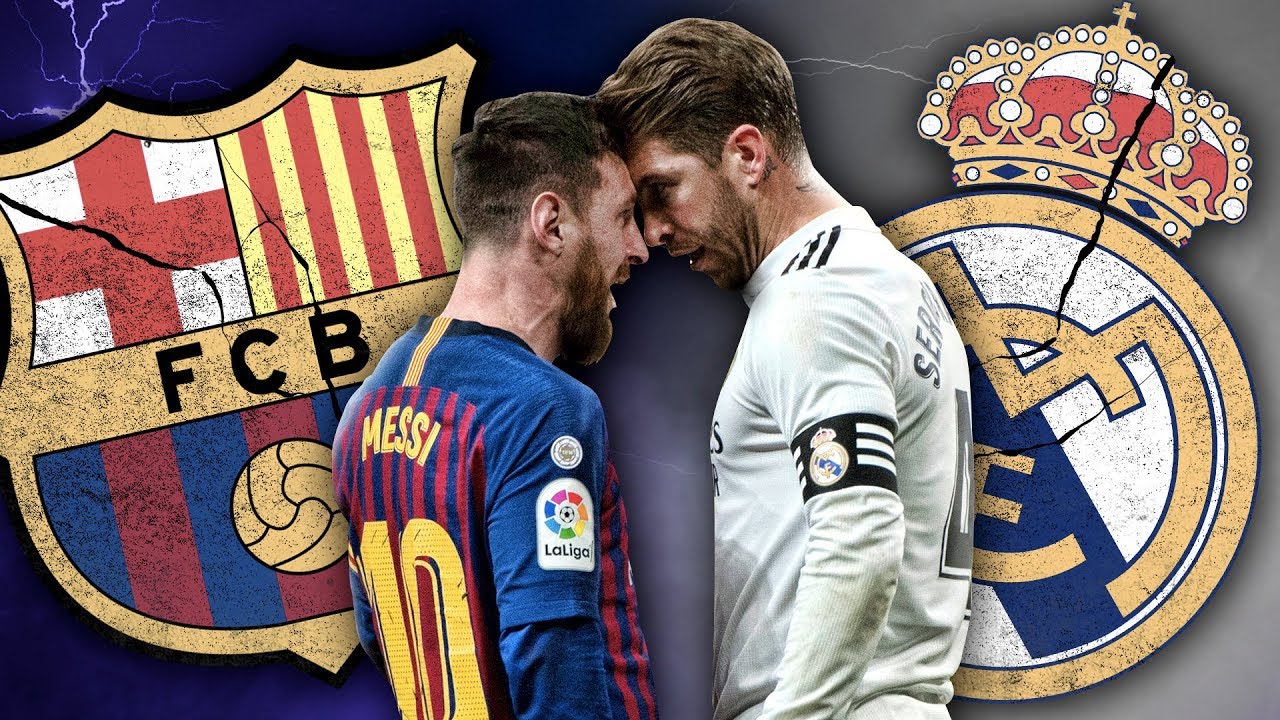
Here's a great way to check whether the person you're talking about football is realistic, logical, rational or not. Ask them who the best football club in the world is? If they didn't answer 'Real Madrid', well then you are not speaking to a rational person. It's completely acceptable for Barcelona fans to murmur away complaining and avoid the question.
You can love your club, you can be a die-hard, season ticket holding, crest tattooed fan and proudly state that your club is the best. But when the passions simmer down, or perhaps when there's nobody looking, there has to be an admission that Real Madrid is the greatest football club in the world.
If the 13 titles of Champions League don't convince you, consider that it is as much as the two next teams have combined. Milan is at seven, Bayern Munich and Liverpool are at six. If you combine the tallies of the next three clubs in line, Barcelona, their ideological forefathers at Ajax, and Manchester United, they would still have fewer big-eared trophies than Real alone. Furthermore, they are the only team that won at least one CL trophy in five different decades!
Yes, continental trophies aren't be-all-end-all. But Real has fewer league titles in the top five European domestic championships than Juventus. The Old Lady has 36, while Real has 34. Although, Juve has only two trophies in the big international competition. If all their failed finals resulted in successes, they wouldn't come close to Real's tally. Furthermore, Juve lost two of those finals to Real.
Real has other titles to spare. The club is the record holder for the FIFA Club World Cup in both iterations of the competition when it was named that and before when it was just the International Cup. Combined seven triumphs. UEFA Cup was won two times, the European Supercup four times, and the Copa del Rey was won by the royal team 19 times.
While Real is defined by those trophies more so than any other club, it is also illustrated by the rivalries it ignited being so dominant, so nearby, or so different.
Starting with the most famous rivalry, not just of Real Madrid, but possibly of entire football. Cemented by the nine years in which the two of the best players ever, Cristiano Ronaldo and Lionel Messi, battled in what is known worldwide as El Clasico. Yet, what made the derby what it is goes beyond the prestige of goals, wins, and titles.
Although it has its origin story quite similar to most long-standing clubs across Europe, founded by students, the road became quite more glamourous for Real in 1920. When the king of Spain Alfonso XIII bestowed the club with its royal title - Real. Prior to it, it was simply called Madrid Football Club.
While Barca had a similar origin story of being formed by expats who just wanted to play football. The clubs first meeting dates back to 1902 when it was still just city names for both. With the Catalans being the victors 3:1.
It's the Catalans part that makes the rivalry so great. Madrid, being the capital of Spain and in its centre is the glue holding the regions of the country glued. Some of those regions aren't too fond of the union to this day, with Catalonia where Barcelona is located being the loudest today.
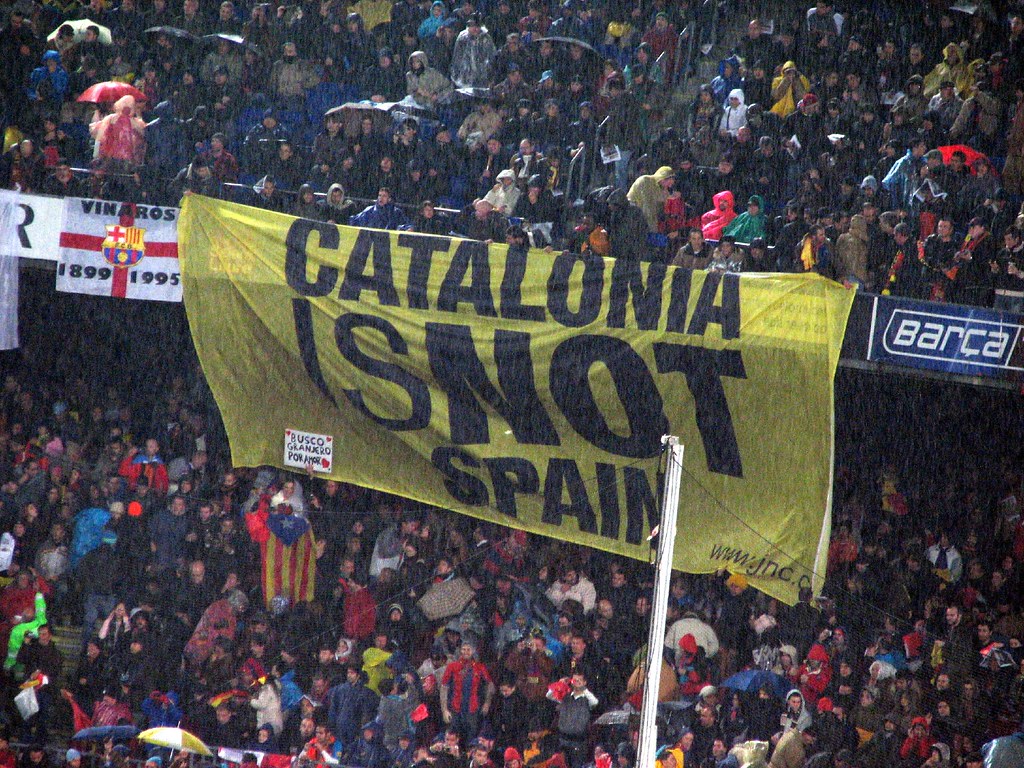
The two clubs had a normal sporting rivalry until the Spanish civil war broke out in 1936. As this is not a historic lecture, to summarize it in a wrongly short amount of time, the nationalist side under general Franco Francisco won over the republican side, which was mostly backed in Catalonia.
Although Real didn't offer support to Franco during the fighting, they did receive his blessing after he became alfa and the omega. Clubs remain a symbolic way for figures and countries to gain popularity, soft-power, and recognition well into the 21st century - just see Chelsea, Man City, or PSG - and it wasn't much different then. While Barca received the short end of Franco's stick for being the symbol and the centre for his opponents. So for all English and French fans who think City’s or PSG’s millions are unfair and unsporting, read on.
This easily explains why the roots of the rivalry are so deep in El Clasico, as injustice is hard to shake off. No better example of it is found than the 1942 Copa del Rey semi-final (then known as the Copa del Generalisimo when Barca won the first leg 3:0. In the return, Barca players received a visit from the Director of state security who politely reminded them who the state allowed Catalonia to stay within the country. The speech inspired Barca players so much so that they lost the second leg 11:1.
To this day it remains the biggest victory of one of the clubs in the history of their rivalry. Although Real still holds second place too with a victory from before the civil war started - it was 8:2 in 1935.
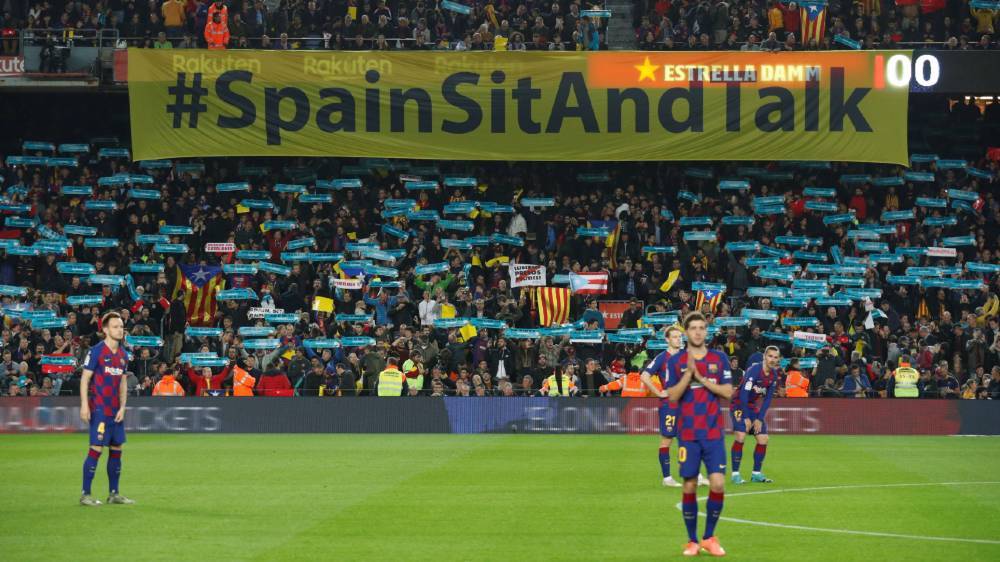
Although Francisco Franco ruled until 1973, Barca enjoyed their best win during his reign, in 1950 humiliating his Europe-ruling side 7:2. Doing something similar seven years later with a 6:1 triumph.
However the tales of Real's favouritism are true, their extent is known only by the neutral direct observers. The results speak of a much more level derby, with Real getting only three wins more in the 182 duels, 75 to 72. Scoring only three goals more too, 293 to 290. With Barca getting the moral victory of having more Copa del Rey triumphs (31) than the Rey’s team.
While the animosities and hostilities did erupt from time to time, for instance when Barca fans once again felt the injustice of being the less-powerful one when Luis Figo was bought by Real directly from Nou Camp in 200. Although it was monetary power, it boiled over the rage of Barca so much so that a pig’s head was thrown on the pitch in the first next derby.
Although it could be easily said and backed that El Clasico reached its peak during the CR7 vs Messi era. For the past three years, since Ronaldo left Spain, the game didn't have that must-see value that made even the casuals tune in and talk about it for a week after. The rivalry still remains heated as the politics has barged right into it again on a major scale, with a recent game postponed because of the protest by the Catalan separatists.
The political differences that were somewhat enforced on Real, yet the ones that help shape its glory, only annunciated the chasm between "them" and Barca fans. As is the case for rivalries, other differences became stark borders, traits to be proud of or dismiss depending on the side you stand at. One call it humility, other complexes and caring about how you appear and the other side too much.
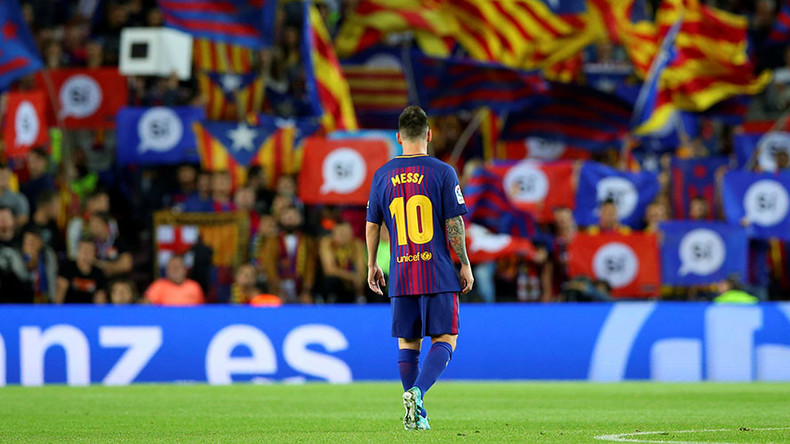
Although, from an outside perspective, there are fewer and fewer differences between the two. Barca lost some moral high ground they so long clanged on too by selling their shirt that was without sponsors for the longest time, until 2010. Now they have two shirt sponsors. One on the stomach, the other on the sleeve. Their academy did deliver them homegrown first-team players more so than for Real which mostly bought their stars, but now they both employ quite similar tactics on the transfer market. While Barca gets to gloat with their allegiance to the passing, attacking, technical style of football, an ideal they haven't forsaken. For Real, their ideal is indivisible from them - winning.
With the issue of Catalonia within Spain not resolved for by any of the sides, El Clasico will remain not just the battle of the crests - it's the battle of the flags as well. The Spanish versus the Catalonian. As the derby gets high square metre coverage for its every iteration, more and more will be dedicated to the political side of it. Especially when Messi moves on or retires and the duel loses a key protagonist.
Another factor in the diminishing popularity of El Clasico, which dominated world, not just Spanish football until recently, is the reemergence of Atletico Madrid. Known as El Derbi Madrileno.
As Atleti was founded a year after Real, the two faced for the first time only in the 1928/1929 season, with Real getting the first and the following two wins. In 2021, the Royal club has 89 wins, 50 more than Atleti, with the draw being a more frequent result than an Atleti triumph. Real scored the same number of goals against Atleti as it did against Barca - 293, yet their city rivals have been far less successful than the Catalans, bagging in 217 for themselves.
These numbers tell the story of the two clubs which are now only eight kilometres apart as the crow flies, yet had such different histories and philosophies behind them. Atleti, although clearly the third team in Spain, have had their big ups and downs, getting relegated in the Segunda twice while Real is one of the three clubs, alongside Barca and Athletic Bilbao that were always the part of the elite in Spain.
Yet Atleti do boast a strong portfolio behind them, being big on their own, not just piggybacking on Real's worldwide successes. Atletico has won 11 league titles, the first two coming during the World War II, sparking the criticism that they too were a dictatorship-backed club. With their name for a while being interlaced with Aviation of the country, the link is clear.
Even with the titles in the domestic championship, Atleti have always been seen as starkly different from Real. Starting out in the working-class, southern part of the city, Atleti were always the more ordinary, common club, further defined by being rivals of the glorious and regal neighbours. While Real has ruled Europe, Atleti has been self-identified as the Cursed Ones or El Pupas - after losing the Champions League final in 1974. Los Colchoneros were leading the match against Bayern Munich in the extra time with six minutes to go when, in the last minute, the Germans equalized with a long-range effort. In the only instance in which a replace of the final was played, Bayern pummeled Atleti 4:0. That is the final that hurt the least of the three lost.
As the following two came against the club's biggest rivals. As for Real it might be Barca, there's no doubt who the Atleti fans look up and look down upon at the same time. In the 2014 CL final, Atleti were leading for the better part of the match until the 93rd minute and Sergio Ramos' equalizer which transitioned into a 4:1 win for Real in extra time. It was the trophy that gave Real their famed La Decima, the 10th trophy in the competition.
Two years later, the two city rivals found themselves again at the roof of Europe, with the defeat coming even more desperately - Atleti fighting to a draw but losing out to penalties.
Although Atleti took the title this year and are a different breed in the Diego Simeone era, forgetting their weirdly-cherished El Pupas legacy, they've endured their worst head to head in the 21st century. Not managing a single win in 14 years against Real, until the club triumphed in the 2013 Copa del Rey. A staggering number of 60 teams beat Real in that period in which Atleti couldn't over 24 games.
While the losses hurt, it's in human nature to be tormented the most by 'what ifs' and the Madrid rivalry has one of the biggest. What if Atleti's former president, the eccentric Jesus Hill didn't disfigure the club's youth academy in 1992? As amongst the players dispersed by the decision, there was one that will haunt Atleti for years, a fan of Los Colchoneros that became one of the biggest legends of the Santiago Bernabeu side - Raul. The long-time top goalscorer for the club, until CR7 arrived, Raul played 741 games for Real, scoring 324 goals and winning everything possible. A lot in the period of Atleti's biggest drought.
Starting in 1902, dominant across decades and centuries, it's only natural that Real had rivalries with other teams in Spain. Valencia, Sevilla, and Osasuna at times, but non left a stronger mark than that with Athletic Bilbao. The role models for their city rivals, the Basque team was a bigger thorn in Real's eye than any other in the early days of football across Spain.
In the first half of the 20th century, the two teams met each other in nine Copa del Rey finals, including the first one in 1903 when Bilbao won 3:2. Real won the next three finals, but Athletic got the following four! Now the teams are equal in wins against each other in the competition, with 10 each.
But overall, Real has, of course, leapfrogged Athletic. Los Blancos won 103 of the 202 clashes, scoring 385 times compared to Bilbao's 267 goals and 62 wins. A surprising difference that is the result of their off-field policies. While Real earned the nickname Galacticos for being a worldwide star-obsessed shopaholic, Athletic remained tied to its roots more than any other club. Using only players that passed through their province's academies or were born in Basque country.
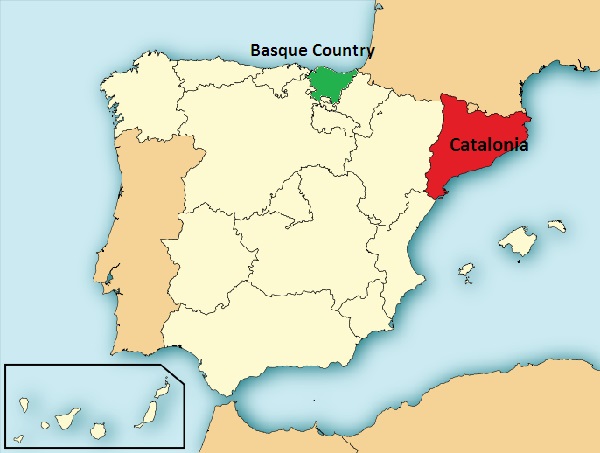
As Athletic got only one win over Real in La Liga over the last 11 years, often suffering great defeats, it's easy to see why this rivalry is primarily a historic one, a cultural one that lost its fire. Similar to the idea of Catalonia vs Spain for El Clasico, the game also symbolized the struggle of Basque people for independence from the country. Although separatism has veined staggeringly in recent years. Yet El Viejo Clasico - the Old Clasico - or the Other Classic as it is also known, is a derby simmering and waiting to be ignited.
Being such a dominant force in Europe, Real had to develop some enemies across the Old Continent. Although the games had a far smaller count than the domestic wars, they often came with higher stakes, especially in the Champions Cup of olden days when there was no group stages. This is what made the official 26 games Bayern Munich and Real Madrid played such a myth in Spain and Germany.
The dramatic Spanish journalists called the Bavarians Real's "Black Beast", La Bestia Negra that is. With the Bavarians kicking the Madridians out of Champions League semifinals in their first two duels, in 70s and the 80s when Real was suffocating for continental success in a drought that lasted for 32 years eventually. In the 20th century, the Bavarians scored four goals in three of the 10 games played against the Spanish representatives. With a 9:1 win in the 1980 preseason friendly being all but.
While today both Bayern and Real players are seen as exemplary professionals and a tussle between them on the pitch seems implorable, in 1987 their duel was the setting for one of the worst unsportsmanlike conduct in football history! Real player Juanito was frustrated by the losing 3:0 in the first-half, and some refereeing decisions, so he stomped on the German legend Lothar Matthaus, first on his body then even on his face!!! A club legend, with 359 games played with utmost determination, scoring 107 goals, and yet the Spaniard snapped in such a way that makes Pepe seem like a pacifist. With UEFA banning the player from European competition for five years!
The myth of the unsuitable Germans persisted even at the brink of the century when the sides for both in the cream of European football. Resulting in such fiery headlines and front pages as when Oliver Kahn, the former goalkeeper and future CEO of Bayern, was simply labelled as "The Enemy" by the local Madrid media Marca.
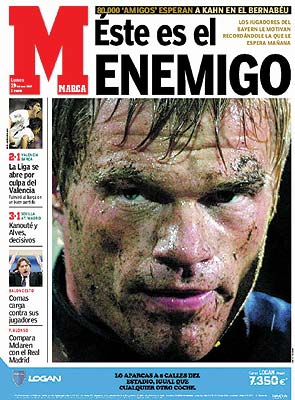
Yet the Spaniards have managed to lose the fear of the Beast from Bavaria and the current records stands fairly equal and towards the more successful CL club. Real won 12 and Bayern 11 duels, with the goal difference going Madrid's way at 41:39.
With the way Real is set out now, the stadium renovation complete, and the status and ambition unchanged despite the debt, the Spanish giant is set to make more enemies across Europe as collateral damage in their eternal quest for more silver.

While all the national leagues have them, there is an aura of speciality about the English football pyramid tiers. The sheer size of it rivals the ones in Giza.
There are reigns and then there are absolute dominations like these longest title streaks in the top five leagues.
We’re pretty sure that even corporate board members have a tough time tracking all the Red Bull soccer teams around the world. Here’s a guide!
Biggest, greatest, strongest. These topics are usually discussed way more than the important question of what are ost supported football clubs in the world.
High-profile transfers are coming in each window, big names, yet some current Newcastle United players made heavy impact at the club.